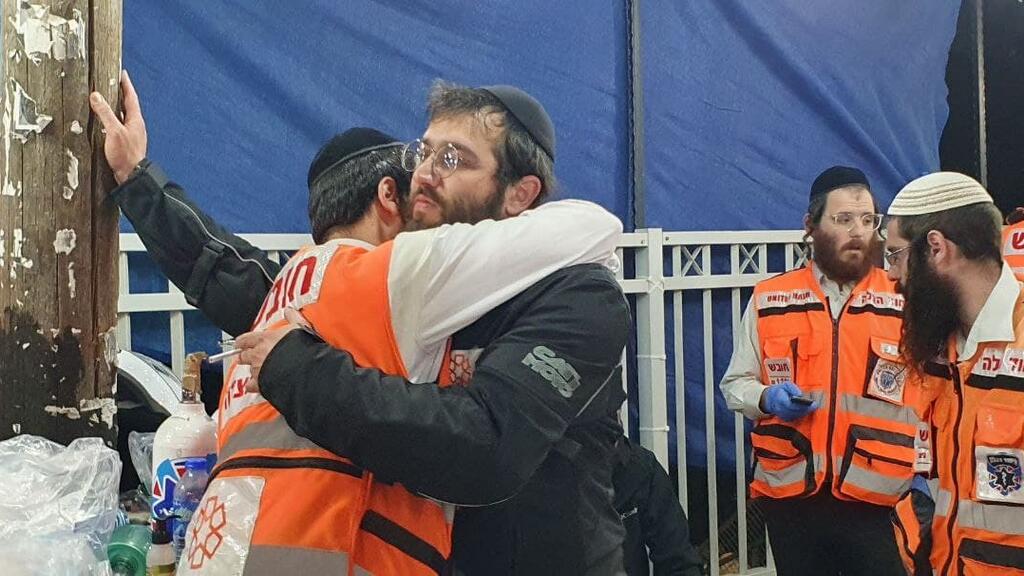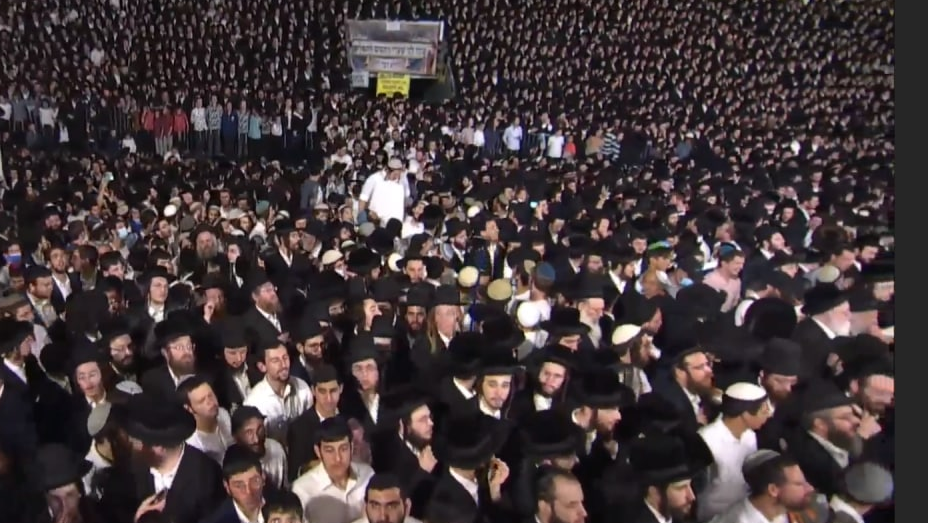Getting your Trinity Audio player ready...
Former prime minister Benjamin Netanyahu was informed in writing by a state inquiry into last year's Meron disaster on Tuesday that he could be held responsible for the stampede in which 45 people were crushed to death during the Jewish festival of Lag BaOmer.
The commission of inquiry into Israel's worst civilian disaster informed Netanyahu and his then-public security minister Amir Ohana, as well as other officials who appeared before it, that they could be adversely affected by the findings of the probe and can ask to receive documented evidence before appearing again in their own defense.
5 View gallery
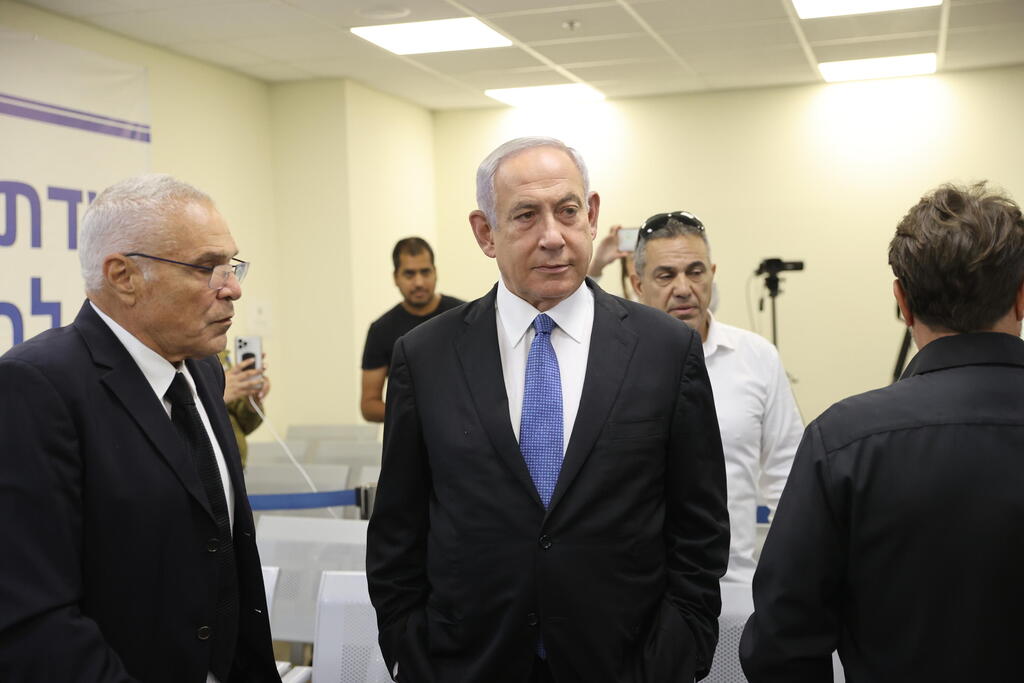

Benjamin Netanyahu appearing before the commission of inquiry into the Meron disaster
(Photo: Alex Kolomoisky)
Netanyahu refused to appoint a commission to inquire into the tragedy during his term and the appointment was made after he left office.
"As a prime minister who served for over 12 years, Netanyahu knew, or should have known that the site on Mount Meron was in disrepair to the extent that it could pose a risk to the large crowds thronging the annual religious festivities," the commission stated.
"Netanyahu did not act as expected from a prime minister to rectify the situation despite grievous reports by the state comptroller's office, some stating that multiple ministries were involved in the shrine and despite the fact that the matter was brought to the government's attention on multiple occasions.
5 View gallery
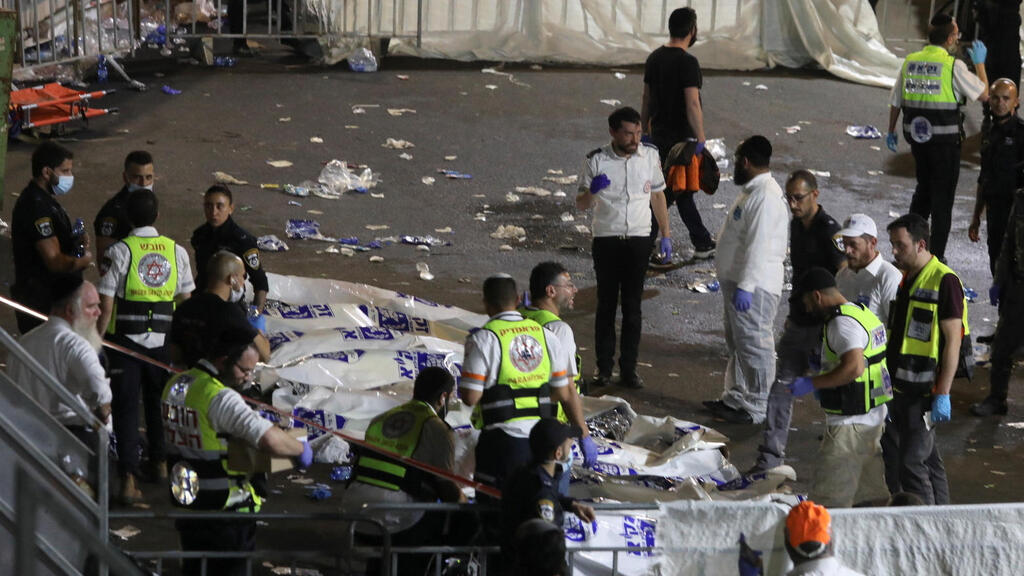

Bodies of the dead on the ground on Mount Meron after the fatal crush that killed 45
(Photo: Reuters)
Netanyahu did not see an effective review of the situation even after the government decided in 2016 on steps that must be taken to rectify the problems. It must be noted that previous governments' decisions were also ignored."
In its explanation for issuing a similar warning to Amir Ohana, who then acted as public security minister under Netanyahu, the commission said he failed to act as expected of him when he greenlit the festivities without putting a cap on the number of revelers allowed on the hilltop shrine at any given time. He also failed to run proper risk management, including considering alternative locations.
"After he was advised about the dangers, especially those posed by overcrowding, he did not act on the information," the commission said. "Ohana did not give the proper consideration to the gravity of the dangers, did not query enough and did not attempt to question the government's decision to not limit the size of the crowd. With the initial decision remaining in effect, Ohana did not request the police to provide him with alternative plans of action to reduce the risks."
5 View gallery
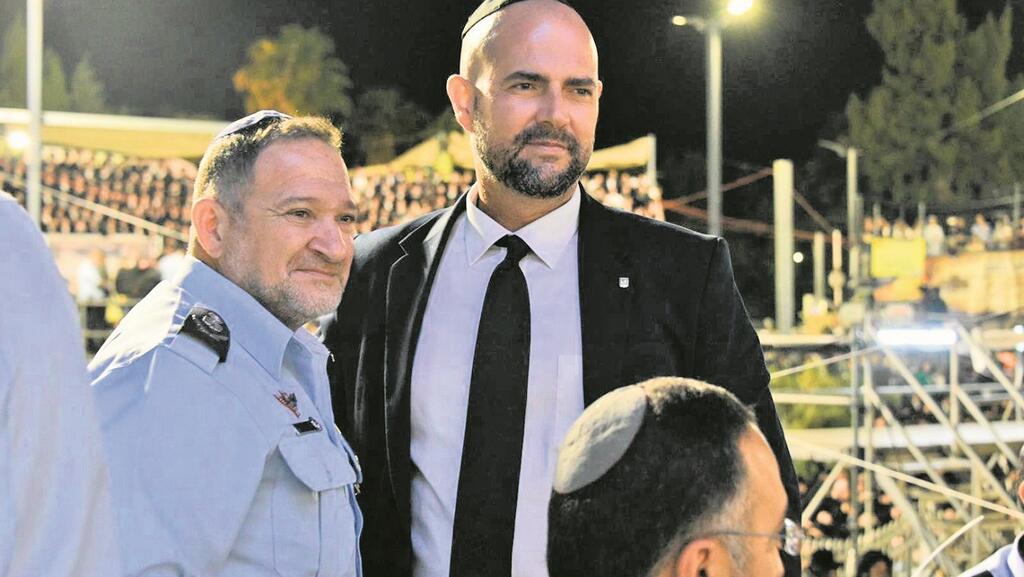

Police Commissioner Kobi Shabtai with then-public security minister Amir Ohana during festivities on Meron, before the deadly stampede
(Photo: Israel Police)
Written warnings were also sent to Police Commissioner Kobi Shabtai and former Northern District Police commander Shimon Lavi, as well as other officials.
"We asked to express our view, that those who hold senior public office and are granted wide and substantive authority must be held to account," the commission said in a statement.
"We view the importance of clarifying expected norms of behavior by the senior office holders so that those norms would be clear."
The inquiry interviewed senior officials, past and present, experts and professionals, eyewitnesses, wounded victims and members of families of the deceased.
In an interim report released last November, the commission issued its recommendations, which included a cap on the number of participants allowed in the festivities, a single central location for a bonfire lighting ceremony and the appointment of a minister who would oversee the event.
The current government has since accepted the recommendations in full.


